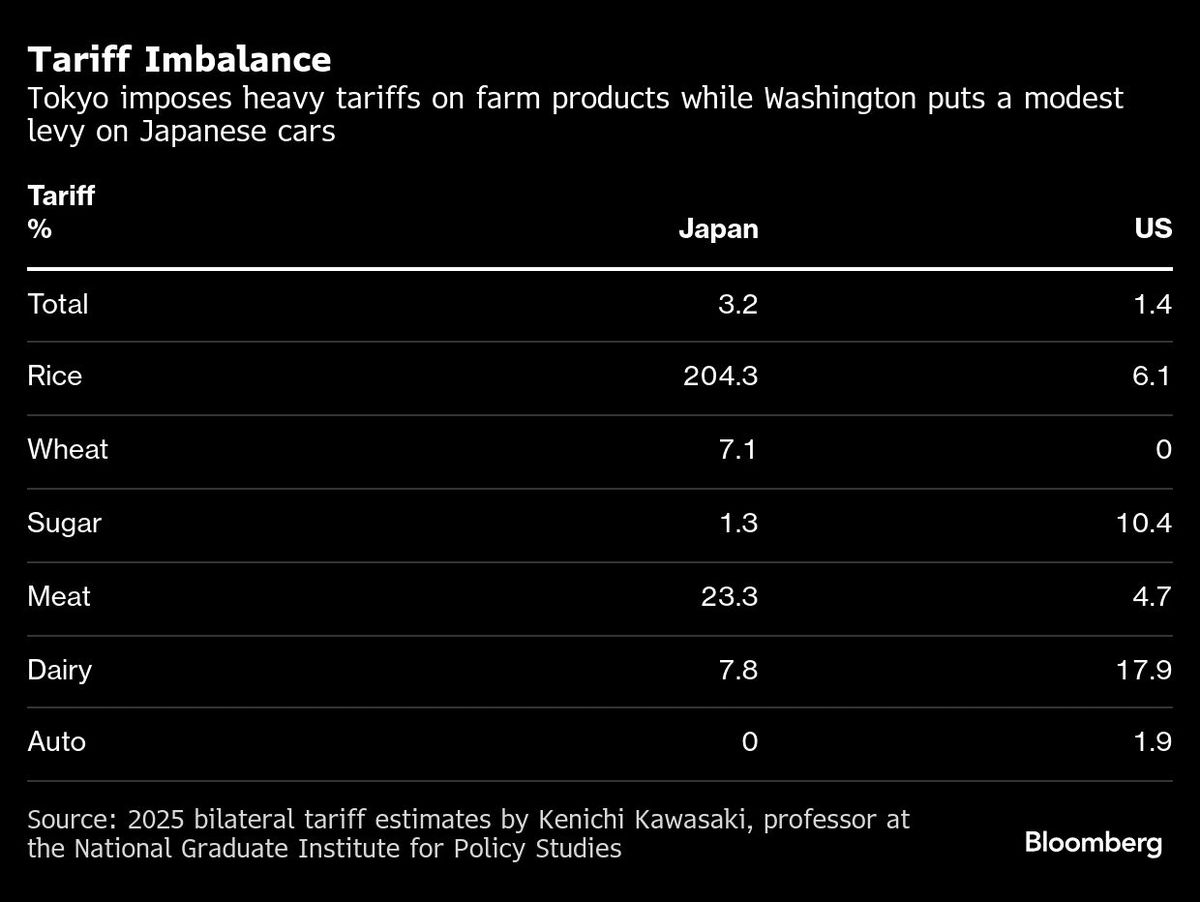
(March 27): Japanese Prime Minister Shigeru Ishiba said he won’t rule out taking countermeasures against the Trump administration’s 25% tariff on US car imports.
“We must consider appropriate responses, and naturally all options are on the table,” Ishiba said Thursday in Parliament. “The bottom line is that we must consider what will best serve the national interests of Japan.”
Ishiba spoke after US President Donald Trump announced the fresh tariff will go into effect on April 2 for all cars that are not made in the US. The levies will hit Tokyo despite repeated in-person pleas by Japanese ministers for an exemption and a summit in February in which Ishiba promised to buy more US liquefied natural gas and boost Japan’s investment into the US to US$1 trillion (RM4.43 trillion).
“We invest in the US, we provide employment, and we pay the highest wages. We are the largest investor in the US,” Ishiba said. “We must clearly state that it is not right to treat all countries in the same way.”
Speaking after Ishiba in a press conference, Japan’s government spokesman Yoshimasa Hayashi said the country has strongly requested an exemption from the tariffs.
“The fact that Japan is also being targeted is highly regrettable,” said Hayashi. “Japanese companies have contributed greatly to the US economy.”
Japan will keep asking for an exemption, Trade Minister Yoji Muto told reporters, while echoing Hayashi in calling the development “extremely regrettable”.
“The automobile industry is Japan’s key industry with an extremely wide-ranging supply chain that includes parts makers,” Muto said. “I have also directly heard from the automobile industry that they are concerned the tariffs can have a wide-ranging impact.”
Last year car and car parts accounted for a little over one-third of Japan’s exports to the US, its biggest export destination. Auto-related companies including material providers employ 5.58 million people in the country, or 8.3% of the total workforce, according to the Japan Automobile Manufacturers Association.
Muto said the government will examine possible impacts on companies and employment and take necessary measaures to help them with financing. Asked if Tokyo considers countermeasures, Muto declined to elaborate.
Still, the tariffs will likely deliver only a small blow to Japan’s economy partly because the Asian nation’s automakers will retain relative competitiveness, given that the measure will apply to all nations, according to Goldman Sachs.
Goldman Sachs expects the auto tariffs to shave only a little over 0.1 percentage point off Japan’s gross domestic product (GDP) growth rate, analysts Tomohiro Ota, Akira Otani and Yuriko Tanaka wrote in a report.
Kenichi Kawasaki, a professor at the National Graduate Institute for Policy Studies, estimates the tariffs are likely to cut car production in Japan by 5.8%. Still, Kawasaki, the former Cabinet Office director for the economic outlook, also forecasts that auto production in Canada and Mexico would fall by 26.6% and 20.3% respectively, adding to the pain of Japanese automakers that make cars in those nations.
Kawasaki also estimated that the tariffs’ hit to the overall economy will be limited, shaving off less than 0.1% of real GDP in terms of volume.
Shares of Japanese carmakers slumped on Thursday following news of the auto tariffs, with Toyota Motor Corp, the world’s largest carmaker by delivery, sinking as much as 4%. The yen strengthened against the dollar on Thursday morning. Mitsubishi Motors Corp meanwhile said it’s considering new opportunities to invest in production in the US.
Uploaded by Tham Yek Lee
- China's biggest state banks to raise US$71.6b to boost capital
- Four Chinese nationals detained for illegally entering Bangkok disaster zone to 'retrieve documents'
- Japan to give crypto assets legal status as financial products, Nikkei says
- Volvo Car brings back Samuelsson as CEO to steer turnaround
- Trump won’t rule out seeking third term as US president, says there are ways
- Massive quake deals blow to Thai tourism hit by safety woes
- Japan's production rises most in 11 months ahead of new US tariffs
- South Korea's short-selling resumption set to entice global funds
- King, Queen perform Aidilfitri prayers at Federal Territory Mosque
- Asia braces for historic test of export model from Trump tariffs

